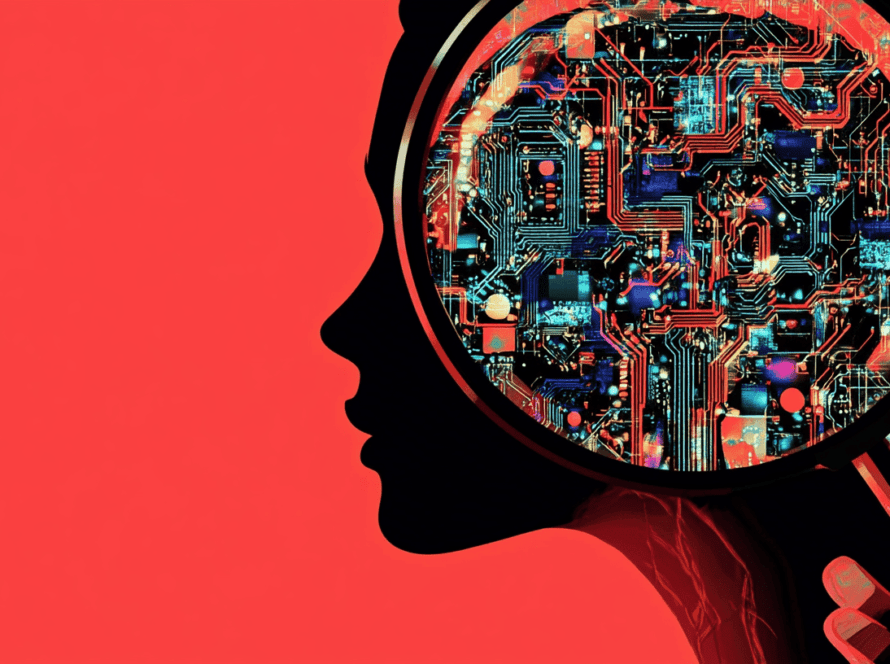LLMs are in all places, so it stands to cause that AI detection instruments are in all places too. Colleges and universities are speeding to undertake them. However there’s an issue: they don’t seem to be as correct as we predict.
False positives are operating rampant in universities they usually’re beginning to declare lives. Harmless college students are being accused of dishonest. Their work is flagged as AI-generated when it is not.
Think about pouring hours into an essay, solely to be informed it is not yours. Your grade, popularity, and tutorial future are in danger. All due to an imperfect algorithm.
These instruments aren’t simply unreliable. They’re doubtlessly dangerous. They create an environment of mistrust and worry. College students second-guess their writing, afraid to sound “too good.” Is that this the educational setting we need to foster? Right here’s why AI detection isn’t your good friend.
Why is AI Detection Flawed?
AI detection instruments have gained prominence as LLMs grow to be extra refined in producing human-like textual content. Nonetheless, these detection strategies are inherently flawed and unreliable for thus, so many causes — and no, we’re not the one ones saying that. The truth is, OpenAI discontinued their very own detector because of this.

Midjourney
So, what’s occurring behind the scenes?
Like I mentioned, LLMs are quickly evolving which is making it troublesome for detection instruments to maintain tempo. GPT-4, Claude, Gemini — as these new fashions proceed to enhance, detection algorithms rapidly grow to be outdated. This cat-and-mouse sport implies that even probably the most superior detectors might fail to determine AI-generated content material precisely.
After which, we additionally must ask ourselves: is there any distinguishable distinction left between human and AI writing? Trendy language fashions can produce nuanced, context-aware (properly, barely, however nonetheless) writing that mimics human thought processes and writing kinds.
However one of many largest causes is that AI detection instruments usually depend on statistical patterns and linguistic markers that may be manipulated. As customers grow to be extra conscious of those detection strategies, they’ll deliberately alter AI-generated textual content to evade detection which makes these platforms much less efficient.
The difficulty is that AI detection assumes that the distinction between human and AI-generated content material is an either-or query. However the actuality is much extra advanced than that. Many trendy writing processes contain each people and AI instruments which is now making a spectrum of authorship that defies easy classification.
And mates, that’s simply the tip of the iceberg.
How AI Detection Places College students in Hazard
It’s one factor to listen to it in principle, however to really examine a number of the circumstances that college students are being pressured to when getting accused of utilizing AI is heartbreaking. Listed below are a number of the most noteworthy tales I’ve discovered:

Midjourney
UC Davis College students
William Quarterman’s world was turned the wrong way up instantly. A stellar scholar with an unblemished report all of the sudden confronted a failing grade. The explanation? His historical past examination was flagged as plagiarized by GPTZero. Worse nonetheless, he was informed to undergo the implications of educational dishonesty.
The twist? Quarterman by no means used ChatGPT. This false accusation took a heavy toll. His tutorial efficiency suffered. His psychological well being declined. Happily, justice prevailed. The college dismissed the case, admitting they lacked proof.
However the story didn’t cease there, as false positives in AI detection struck once more, this time nearer to dwelling. Louise Stivers, one other UC Davis scholar, confronted comparable accusations. TurnItIn flagged her case transient as AI-generated. Assist got here from an surprising supply: William Quarterman. Alongside together with his father, Quarterman suggested Stivers. Their mixed efforts efficiently overturned her tutorial sanction.
College of Melbourne Masters Scholar
A College of Melbourne scholar confronted a false accusation of utilizing AI in her project. The scholar, below the pseudonym of Rachel, acquired an e mail claiming AI use in her work. Her anxiousness spiked. She denied the allegation and offered proof. Regardless of this, a listening to was scheduled a month away. The wait triggered important stress for Rachel.
The college states that extra proof is required earlier than making misconduct allegations. Nonetheless, Rachel’s case initially relied solely on Turnitin’s detection. Two days earlier than the listening to, Rachel offered her browser historical past and project drafts. The matter was then dropped.
Turnitin’s consultant acknowledged the weak point in utilizing detection as the only real foundation for allegations. He instructed that evaluation design ought to enable college students to indicate their work course of. This method may stop comparable conditions sooner or later.
Related Tweets
Is There Any Hope For Higher AI Detection?
I need to say sure, I actually do. However I don’t assume that — in our present understanding of language fashions and lack of governance — there’s any manner for AI detectors to be absolutely correct.
The problem lies within the ever-evolving nature of LLMs. Like I mentioned, it’s a continuing sport of cat-and-mouse. A mannequin improves, so does AI detection, however then the mannequin additionally improves in a few months, and the cycle goes on.
There’s additionally the truth that there may be an awesome quantity of on-line content material. The assets required to precisely scan and analyze every bit of digital content material (since they’re utilized in coaching LLMs) are immense, and the potential for errors stays excessive.
That is the unhappy actuality:
Whereas there’s undoubtedly ongoing analysis on this area, the highway forward isn’t with out challenges. The hope for actually dependable AI detection could also be simply that — a hope, slightly than a sensible expectation within the close to future.
So, What Can We Do?
To guard your self from false positives, right here’s what it’s worthwhile to do:
Acquire As Many Proof As You Can
If you’re in entrance of a college board, the very best line of protection is overwhelming proof. Right here’s the place you may supply them:
- Browser Historical past. Reveals that you just really did the analysis.
- Doc Historical past. A minute-by-minute report of your paper’s progress.
- Library Information. Establishes that you just went to the library to finish your paper and used books as sources.
- Handwritten Outlines. Lets you declare that you just got here up with the whole lot on the paper.
Educate Your Friends About AI Detection
False constructive AI detection is a rising concern. Even when firms declare that just one in 100 college students is affected — that’s nonetheless one scholar who’ll face a lifetime of scrutiny due to one thing he didn’t do. That features unfair penalties and broken reputations. Educating friends helps fight these errors.
Unfold consciousness. Understanding the restrictions of AI detectors protects real work. It promotes truthful evaluation of content material. Knowledgeable friends can problem false positives successfully. This safeguards tutorial {and professional} integrity on this GPT-dominated world.
Take into account Utilizing Paraphrasing Instruments
And on your personal safety, I additionally extremely counsel utilizing paraphrasing instruments on your work. However not simply any paraphraser, you want one thing particular:
AI bypassers.
These paraphrasing instruments give attention to creating textual content that passes widespread AI detectors. Now, I’m not going to sugarcoat it — there’s undoubtedly room for educational abuse on this expertise. However I’m going to suggest it as a result of I additionally see a whole lot of potential for good. Anybody can use it, whether or not or not you employ AI.
My suggestion? Undetectable AI.

This is likely one of the only AI bypassers out there as we speak — and I ought to know, in any case, we’ve written a whole lot of articles about Undetectable AI previously. One factor that stands out about it’s that it might disguise from AI detection utilizing any of the most well-liked detectors as we speak. For extra info, you may learn extra about Undetectable AI in our full evaluation.
The Backside Line
AI detection isn’t your good friend — it’s a band-aid resolution as a result of we will’t provide you with something higher but.
LLM abuse within the tutorial area is certainly an actual risk, however the everlasting resolution shouldn’t contain harmless college students getting unfairly sanctioned and handled responsible till harmless. Each eventualities are scary.
As for college kids, the bitter tablet to swallow is that we have now to proceed to adapt to those altering occasions till one thing higher comes alongside. So now, put together your proof always and think about using AI bypassers. These can doubtlessly save your profession.
Academics even have so much to say about AI detection, so hear from them on this article. Good luck!


